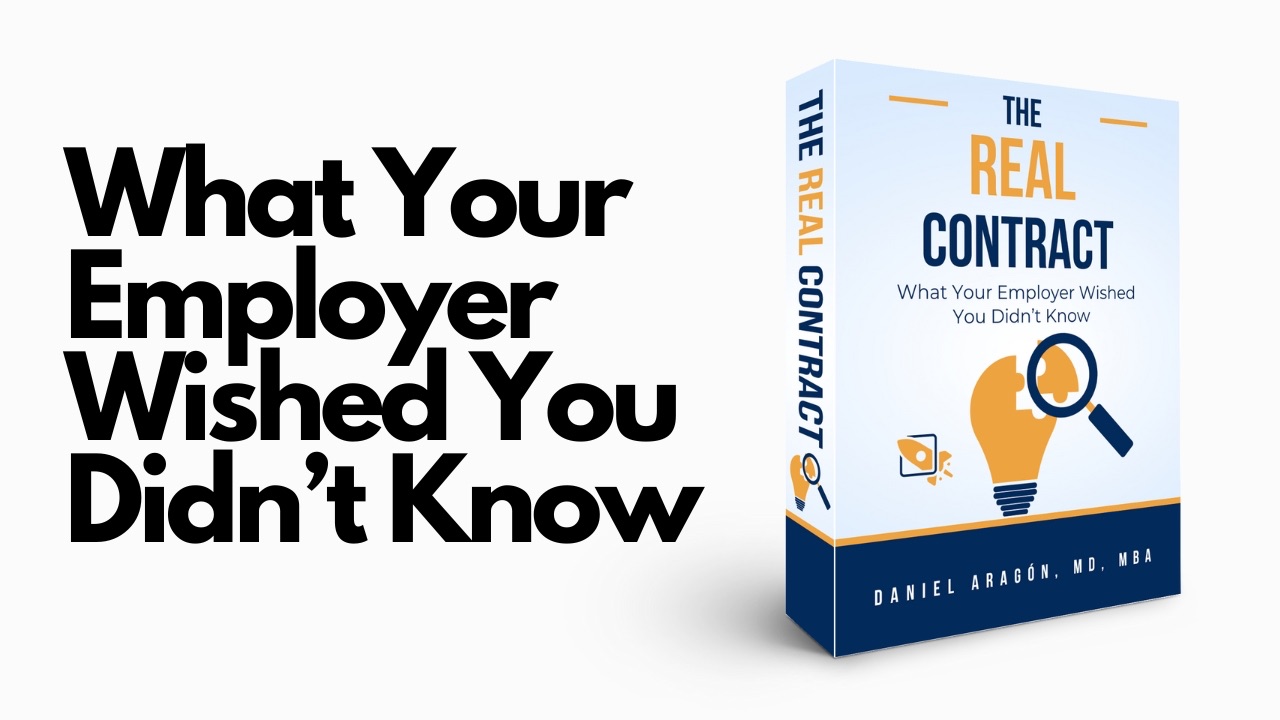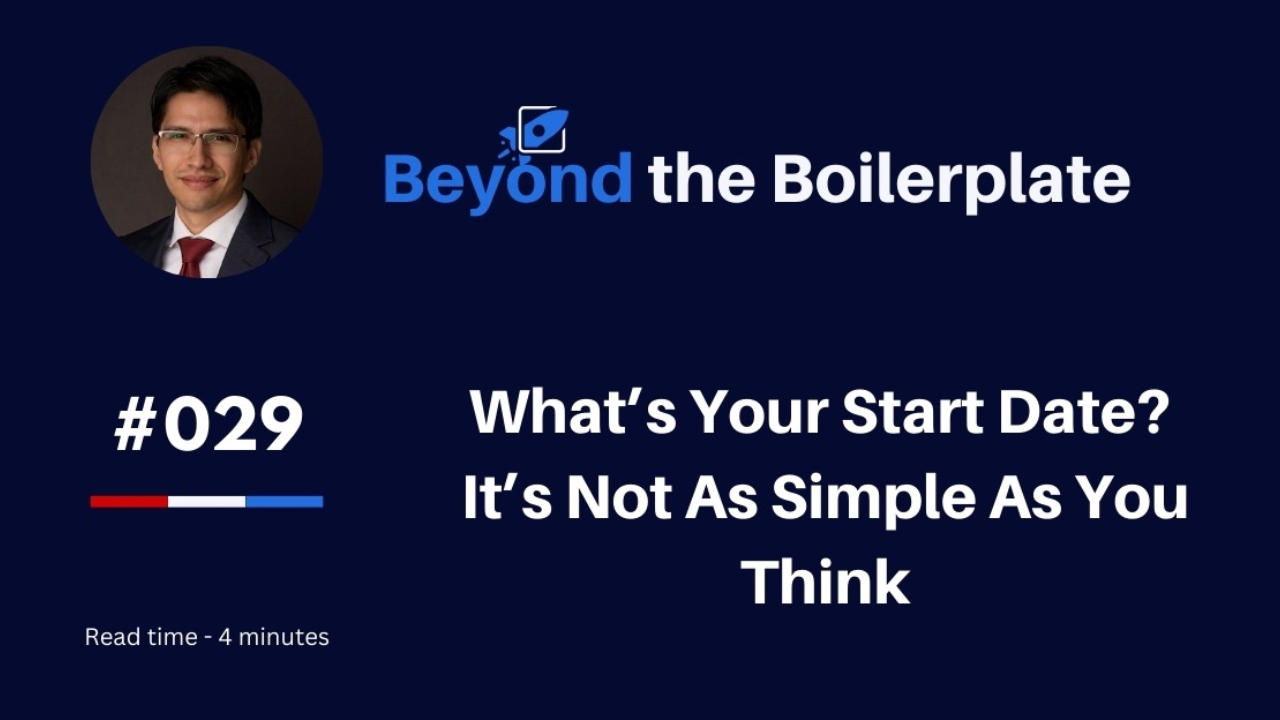
How to Negotiate Your Physician Contract Like a Pro (Without Getting Played)
Key Takeaways
✅ Employers use pressure tactics. If you don’t recognize them, you’ll agree to things you shouldn’t.
✅ “Take it or leave it” is almost never real. There’s almost always room for negotiation.
✅ Your best weapon? Alternatives. The less you need this job, the more power you have.
✅ Unpredictability works - but only if you control it. You don’t have to say “yes” or “no” right away.
Are You About to Sign a Bad Contract? Probably.
Let’s be honest. Hospitals and private practices do not hand out “fair” contracts out of kindness. They draft contracts that protect their interests, not yours. If you don’t push back, you’ll sign a deal that benefits them at your expense.
Ever heard:
❌ "This is our standard contract. No one negotiates it."
❌ "If you ask for too much, the offer might disappear."
❌ "You don’t need a lawyer, it’s all very straightforward."
🚨 These are pressure tactics. You are being played.
The good news? You can flip the script, if you know how to negotiate like the people on the other side of the table.
How Employers Use Pressure to Control Negotiations
You: "I’d like to discuss salary and call coverage."
Them: "This is the standard offer. Everyone gets the same."
🚩 Lie. Contracts are negotiated all the time.
How pressure works against you:
- They make you feel like you’re lucky just to have an offer.
- They imply you’ll lose the job if you ask for changes.
- They delay responses so you feel rushed to decide.
💡 How to flip the script:
- Say, "I understand, but I’ve reviewed similar contracts, and these terms are negotiable."
- Have another offer? Use it. Employers take you more seriously if they know you have options.
- Never sign in a rush. If they pressure you to sign quickly, it’s because they don’t want you looking too closely.
Exaggeration & "Truthful Hyperbole" - Yes, It’s a Real Tactic
Hospitals and private practices inflate numbers all the time. Ever heard?
- “You’ll make $400K easy with bonuses.” (Without telling you the unrealistic RVU targets required.)
- “Most of our doctors take less call than expected.” (Until you sign, and then - surprise! - you’re covering for everyone.)
- “Our non-compete is standard.” (Standard? Says who?)
How to spot exaggeration in your contract:
✅ Ask for the data. "What’s the average actual take-home pay for someone in this position over the last three years?"
✅ Verify workloads. "Can I speak with a current physician about their call schedule?"
✅ Never accept vague contract language. If something is promised verbally but not in writing, it doesn’t exist.
💡 Your move: If they say, “This is a great deal,” respond with, “If it’s so great, let’s get those details in writing.”
Unpredictability Can Work in Your Favor
Most residents and fellows negotiate the same way. They get an offer, look it over, send back a few changes, and hope for the best. Employers love this predictability. They control the process.
What if you didn’t follow the script?
💡 Instead of asking for changes all at once, try this:
1️⃣ First, ask about general expectations - without mentioning money. Get them talking.
2️⃣ Then, push back on workload. They’ll think that’s your main concern.
3️⃣ Later, drop the big ask (salary, sign-on, call pay). Now, they feel invested in keeping you happy.
📌 Why this works:
- You make them work harder to figure out what you want.
- They feel like they’re getting small wins - before you hit them with the real negotiation.
- By the time you ask for higher pay, they’ve already agreed to other terms.
Public Pressure - How Some Doctors Get What They Want
Most negotiations happen behind closed doors. But some doctors use public leverage.
✅ Got a competing offer from another hospital? Mention it.
✅ Know other physicians in the group are unhappy with their contracts? Bring it up.
✅ Familiar with MGMA compensation data? Use it.
💡 The key: If you can make them think saying no will make them look bad, they’re more likely to say yes.
What to Do If They Won’t Budge? Walk Away (Or Make Them Think You Will)
Biggest mistake? Thinking this is your only option.
If an employer refuses to negotiate key terms, they’re telling you exactly who they are.
❌ "We can’t change your schedule." → Translation: Expect to work more than you want.
❌ "We don’t offer sign-on bonuses." → Translation: We don’t value recruitment.
❌ "You’ll make more later." → Translation: You won’t.
💡 Your move:
- Have a backup plan. If they think they’re your only choice, they hold the power.
- Say no and wait. The second they think you’re walking, they often come back with a better offer.
- Be willing to actually walk. A bad contract now = years of regret later.
They Expect You to Take a Bad Deal. Prove Them Wrong.
🚨 If you don’t negotiate, you will lose money, freedom, or both.
Employers use tactics to control the negotiation. If you don’t know what they are, you’ll accept a deal that favors them.
✅ Recognize pressure. Employers create urgency to stop you from thinking clearly.
✅ Expect exaggeration. If something sounds too good to be true, it probably is.
✅ Stay unpredictable. Don’t negotiate the way they expect you to.
✅ Be willing to walk. The best way to win a negotiation is to not need it.
The Best Negotiators Know Their Worth. Do You?
💡 Before you meet with a lawyer, make sure you understand your contract.
💡 Before you sign anything, make sure you negotiate what matters.
Because once you sign? It’s too late.






